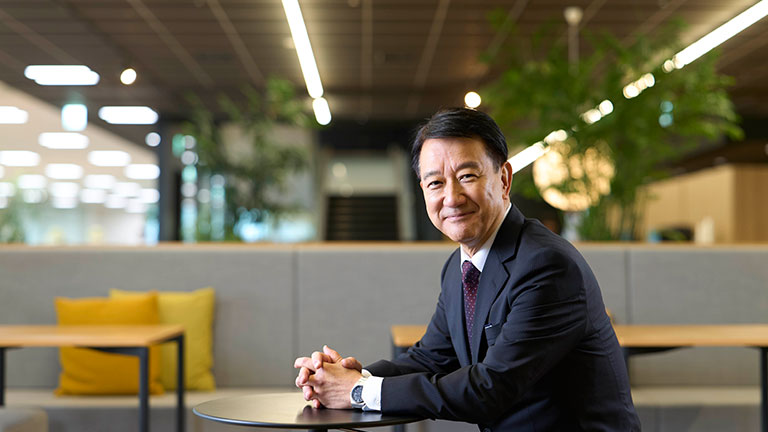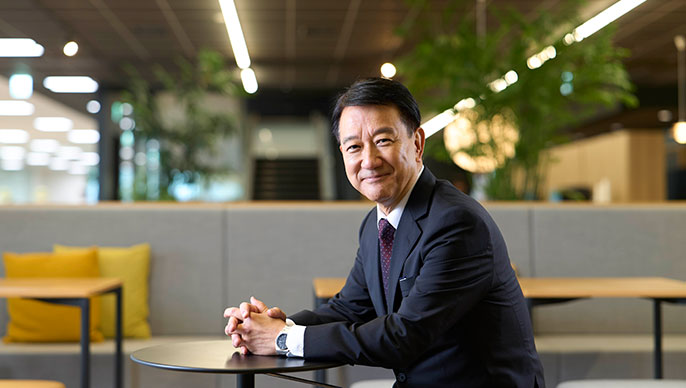CHRO Message


Realizing sustainable value creation through strategic human capital investments
Representative Director
Executive Vice President
Chief Human Resources Officer,
Chief Compliance Officer
Yoshiaki Takemasu
What does human capital management mean to you?
Human capital management is about treating the knowledge, skills, capabilities, and motivation of each individual as intangible capital, and by maximizing it, contributing to the sustainable growth of Mitsui. Since the founding of the former Mitsui & Co.,* we have consistently fostered a corporate culture that values people, and we have continuously made wide-ranging human capital investments.
The skills and capabilities of our people can only be fully realized with the right systems and environment, and high employee engagement is a crucial factor for maintaining a strong desire to take on new challenges. For our human capital investments, we set KPIs to verify how they specifically lead to the enhancement of our sustainable corporate value and differentiation from competitors. We then use this verification to address challenges. We will continue to disclose this series of initiatives in an easy-to-understand manner.
* From a legal perspective, there is no continuity between the former Mitsui & Co. and the present Mitsui & Co., and they are totally separate entities.
Can you provide some specific examples and progress on human capital investments?
We continue to make various human capital investments, including in recruiting diverse talent, enriching global and group-wide training programs (including reskilling), revising our HR systems and refreshing our platforms, organizational development, and improving employee wellbeing and engagement. One example is Bloom,*1 our global talent management system, that went fully operational last year. We deployed Bloom to centralize the management of global personnel information, which had previously been managed in separate regional systems. This allows us to globally and thoroughly allocate the right people in the right roles, regardless of where they were hired or their background.
As a management indicator to measure the effectiveness of our human capital investments, we have conducted the Mitsui Engagement Survey (MES) since 2018. Conducted annually, the survey measures and analyzes the strength of each employee’s connection to Mitsui, sense of personal growth, their motivation, and their empathy toward the organization’s strategy and direction. The results of MES are used for organizational development in which employees take ownership.
We believe there is a clear correlation between the two key indicators, “employee engagement” and “employee enablement,” and the organization’s productivity and business performance. In the MES for FY March 2025, the scores for both indicators improved compared to the previous fiscal year. We attribute this success to our revised HR systems, which support employees’ autonomous career development, a flexible training framework that meets employee needs, and various initiatives for on-site organizational development.
*1 Covers approximately 9,000 employees, including employees from overseas trading affiliates in addition to non-consolidated employees.
Please tell us about the human resources strategy that supports Mitsui’s portfolio management.
Portfolio management is the cornerstone of our corporate strategy.
To continuously improve the quality of our business portfolio by reallocating management resources through business entry and exit, it is essential to develop independent professionals who can flexibly adapt to change. Amidst technological innovations such as generative AI and shifts in business models, we are focusing on reskilling initiatives to help our employees acquire diverse skills. This will enable us to develop capable individuals with outstanding adaptability.